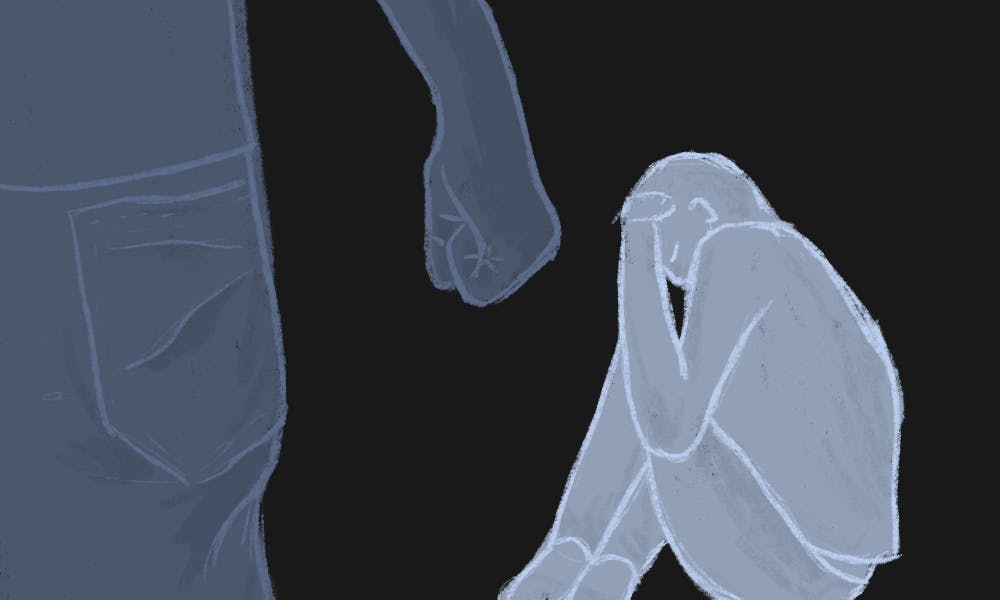
Despite the prevalence of hookup culture or because of it, many of us — secretly or not so secretly — idealize college romance. While times and conventions have changed, and fewer of us attend school for “MRS degrees,” a significant number of people still meet their spouses in college, and even more hope to. Before I started college, not only was I told that hookups can be messy, and that you run the risk of falling in love and getting hurt, but I also picked up, somewhere along the way, that hooking up — for women, as the conventional wisdom goes — can be dangerous. As toxic as rhetoric about drinking, going out, or having casual sex being pathways to assault is, our culture puts out the message that hooking up is perilous.
In contrast, college relationships are easy to romanticize, especially when you are yearning for connection; they seem in some way more pure and idyllic than other love affairs. Many times, I’ve seen couples holding hands on Locust and thought about how perfect they must be together — that there was no danger there. At the start of college, to me, dating seriously and steadily seemed unfailably safe.
In the middle of the #MeToo era and in the midst of a long, nationwide conversation about ending interpersonal violence on college campuses across the country, there have been a lot of conversations about how to stop sexual assault — as there absolutely should be. But we have not given dating violence in college relationships a fraction of the attention that they deserve. It is more prevalent than we acknowledge, it doesn’t always look like what cultural stereotypes say abuse manifests as, and we all need to do a better job of being aware of the warning signs of relationship violence, and not downplaying the dangers of it in our own community.
According to the Association of American Universities’ 2015 Campus Climate Survey on Sexual Assault and Misconduct, which surveyed students at Penn and 27 other American universities, 9.8% of students who have been in a partnered relationship since starting college reported experiencing interpersonal violence or abusive behavior in at least one of those relationships. At Penn, 9.7% of female undergraduates and 9.2% of male undergraduates reported that, at some point, their partner had either used physical force against them, threatened to physically harm them, kept them from seeing friends and family, prevented them from going to class, or threatened to out them to others. Those numbers are just for the behaviors asked about by the survey — other abusive behaviors and warning signs include emotional manipulation, gaslighting, and eroding or disregarding a partner’s boundaries and privacy. Even without the inclusion of more emotionally abusive behaviors, though, those numbers are sobering.
One of the biggest obstacles to combatting dating violence in college, besides lack of awareness, is that we don’t always know what it looks like. There’s a stereotype that people stay in abusive relationships because they’ve been in them a long time; they might be married to their partner, have children with them, or have otherwise invested so many years into the relationship that it’s hard to leave. While this can certainly happen, the AAU survey identified that more casual relationships, situationships, etc. among college students can still contain the hallmarks of violence. Many of us also believe that dating violence is usually or always perpetrated by a man and suffered by a woman, when, in actuality, undergraduate men and women at Penn report similar rates of experiencing abuse, and nationwide, 22.8% of transgender or gender non-conforming undergraduates who date have experienced abuse. To stop relationship violence, we have to stop assuming that certain groups must be “safe” from dating violence; the truth is that it can, and does, affect anyone.
I don’t want to say that committed relationships are necessarily unsafe for college students. I personally know many people at Penn who are in healthy and happy relationships. But in my own life, I have started to try and pay special attention to, check in with, and extend my unconditional support to my friends in relationships, just in case. Although we can never know what goes on behind closed doors, it is our responsibility to know the warning signs, to make it clear that we won’t tolerate abusers in our groups and circles, and to support survivors in the Penn community. As small as these actions may seem, they are crucial — and they can mean the world to the people you know that need to see them.

ANA WEST is a College sophomore from Spring Lake, Mich. studying English. Her email address is anawest@sas.upenn.edu.
The Daily Pennsylvanian is an independent, student-run newspaper. Please consider making a donation to support the coverage that shapes the University. Your generosity ensures a future of strong journalism at Penn.
Donate







